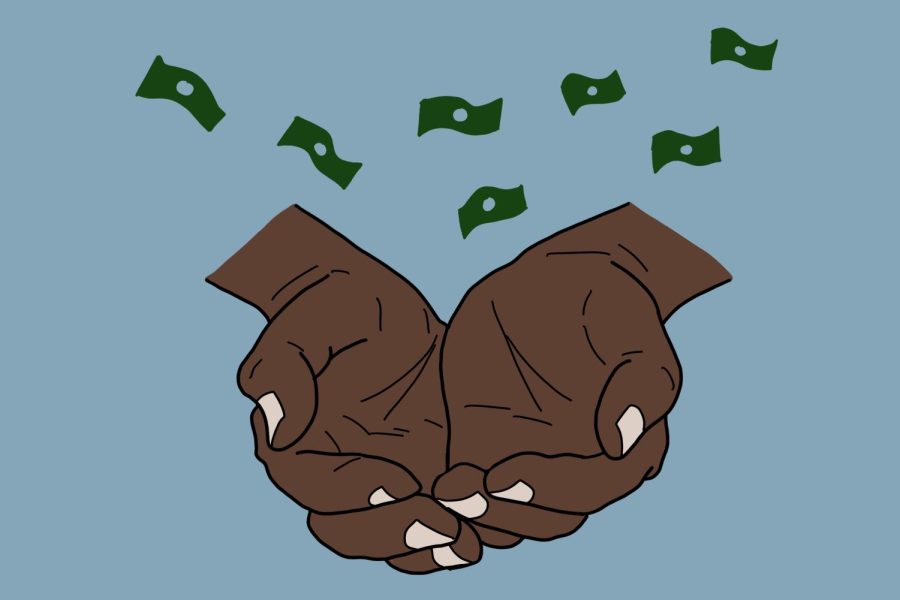A reparations retrospective: Looking back at Evanston’s historic reparations initiative
The Restorative Housing Program focuses on repairing the harm caused by redlining and other discriminatory housing policies between 1919 and 1969. Many Evanston residents said it resembles a housing voucher program more than it does reparations.
May 25, 2023
Rose Cannon said she still remembers the excitement she felt at an early Evanston town hall on reparations in December 2019.
A few weeks prior, the city had become the first in the country to pass a reparations resolution, which aimed to address the history of opportunity and wealth disparities affecting Black residents. More than 700 people were present at the program’s reveal at the First Church of God, bursting into song in celebration.
“This was the biggest Black church in Evanston, and it was packed,” Cannon said. “It was such a feeling of pride.”
But in 2021, Cannon helped found Evanston Rejects Racist Reparations, an online organization calling for the delay and reevaluation of the program.
Like many Evanston residents, Cannon’s feelings toward the reparations gradually soured as discussions culminated in the city’s first initiative: the Restorative Housing Program.
The program focuses on repairing the harm caused to Black residents through redlining and other discriminatory housing policies in place in Evanston from 1919-1969, according to the city’s website. Until March, reparations recipients could only use their $25,000 grant to assist with a down payment on a new property, a mortgage payment or a home improvement.
Though she qualifies for the program, Cannon opted not to apply.
“I’ve been renting for a while here,” Cannon said. “I knew I wasn’t going to buy property with $25,000, nor did I have a property to refurbish.”
Cannon is not alone. Only about 650 out of Evanston’s more than 12,000 Black residents applied for reparations.
Many residents have voiced concerns that the Restorative Housing Program resembles a housing voucher program far more than it does reparations.
However, the Rev. Michael Nabors, president of the Evanston-North Shore Branch of the NAACP, said focusing on Evanston’s 50-year period of housing discrimination was necessary. The Reparations Committee needed to provide tangible evidence of damage to Black residents caused by the city through housing practices to get the program passed by City Council in 2021.
“It was something that we thought was critical in order for us to begin to get the money out to folks in the community, and to show Evanston and the rest of the nation that local reparations in Evanston can work,” Nabors said.
Evanston resident Meleika Gardner said housing assistance programs should be “a given” in any local government, but it would be an “insult” to conflate them with reparations.
“I am not against people receiving a housing program,” Gardner said. “But that shouldn’t be put in a category of reparations for generations of discrimination, racism and terrorism.”
On March 25, City Council added direct cash payments as an option for reparations recipients. It changed the requirements after Kenneth and Shelia Wideman, two of the first 16 recipients, asked the city to allow them to use their $25,000 for rent.
Many community members, including Evanston Rejects Racist Reparations organizers, have called for cash payments since the program’s inception, arguing that allowing the money to go directly to financial institutions rather than recipients overlooks banks’ part in mortgage discrimination.
The city had been reluctant to implement direct payments, since payments could be liable to income taxes, according to a May 7 Chicago Tribune article. Nicholas Cummings, Evanston’s corporation counsel, received a new legal opinion that could give the city a potential solution, the Tribune said.
But, nearly two months after the city approved cash payments, the Widemans still have not received their money, and there have been few updates from the city on the status of cash reparations.
The Reparations Committee made its last public appearance at its meeting on April 6, and discussed the potential challenges of establishing a separate cash benefit reparations program. Its May 4 committee meeting was canceled.
Cannon and Gardner both expressed frustration with the city’s lack of transparency on the future of the program.
“These people need to be paid their $25,000 in cash,” Cannon said. “And we know that the city is struggling with that behind the scenes, and they won’t tell us.”
Ald. Krissie Harris (2nd), a member of the Reparations Committee, said the committee canceled its meeting because it did not have any new updates this month.
In addition to potential income tax liability, Harris said cash payments may affect the benefits of reparations recipients on social programs, since their annual income would increase. She added that the city’s legal team is currently obtaining information from state government agencies to determine how to navigate these legal issues.
“Everyone wants us to rush, and we can, but then there’s unknown liability and that’s not a good place to put people,” Harris said. “We’re not trying to hide anything — we’re just really trying to do things right, and ‘right’ is not always expedient.”
Harris said the Reparations Committee will have more information about the status of the reparations program at their next meeting on June 1.
Going forward, the Reparations Committee will start subcommittees dedicated to three additional reparations initiatives addressing other impacts of systemic discrimination against the Black community, according to Harris. The focuses of the new reparations initiatives include education and entrepreneurship.
Despite Evanston’s reparations program criticism, Nabors said he continues to stand behind it.
“Even though there are a number of people who don’t agree with what we’re doing in reparations, don’t agree that it’s a solid reparations program, I believe that we have sparked something that has captured the attention of the nation,” he said.
Email: joyceli2025@u.northwestern.edu
Twitter: @joyycee_li
Related Stories:
— Reparations Committee discusses next steps for direct cash payments, separate cash benefit program
— Reparations Committee opens applications to join working groups
— ‘Too little, too late’: Black residents disillusioned by pace of Evanston reparations program


